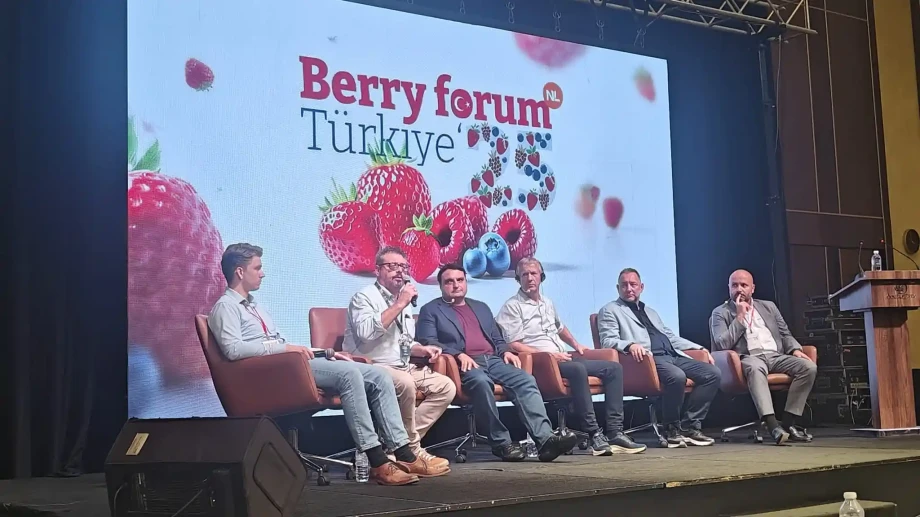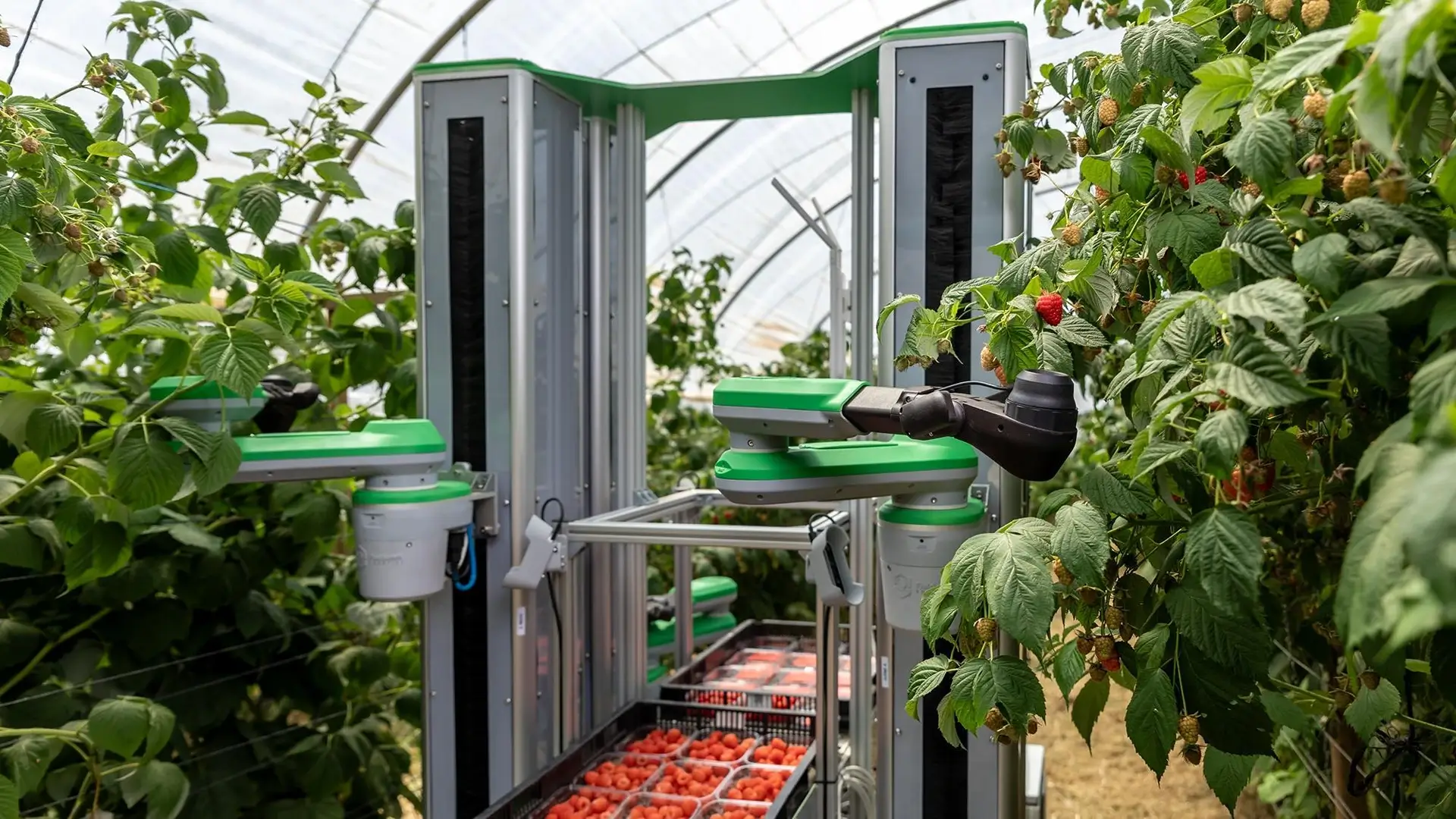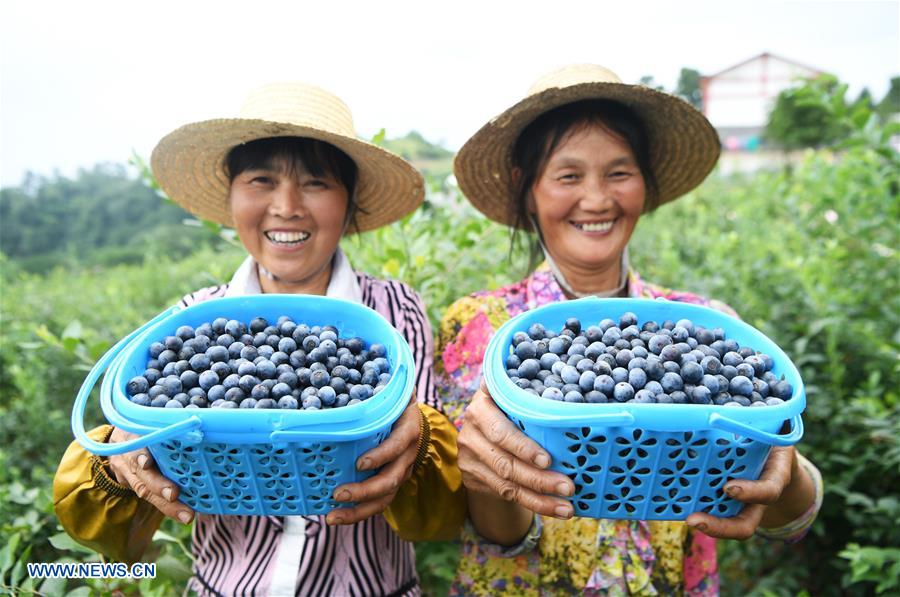Antalya — October 21, 2025. With 220 registered participants, growers, breeders, analysts, and buyers gathered in a single hall to discuss strawberries, blueberries, raspberries, and blackberries—but above all, to talk about the future.
I had the pleasure of being one of the speakers of the day and of presenting, through my talk, the concrete impact of climate change on berry cultivation and the strategies needed to address it.
The Turkish Berry Forum 2025, organized by the Embassy of the Netherlands in Turkey, the Dutch Ministry of Foreign Affairs, and the Netherlands Enterprise Agency (RVO), in collaboration with Holland House of Fruits (coordinated by Frederique Vogel), represented a crucial moment for the young but dynamic Turkish berry industry.
The event went beyond presenting successful production models: it compared established European experiences and Turkey’s rapidly expanding ambitions, with top-level technical, economic, and strategic contributions, and reflections projected over the next 20 years.
A changing global industry
Speech by Jevhen Kuzin (FAO)
Jevhen Kuzin’s presentation provided a clear analysis of global competition in the berry market, with particular reference to strawberries and blueberries.
Egypt confirms itself as the world leader in frozen strawberries and is strengthening its position also in fresh fruit, creating strong competitive pressure for Turkey, which at the moment cannot compete with Egyptian market prices. At the same time, the Russian market, traditionally important for Turkish strawberries, is declining due to Egyptian and Jordanian competition and domestic economic weakness: the growth forecast for 2026 is just +1%, leading to a reduction in imports.
The global context, however, remains structurally favorable to berries: consumption is still far from saturation, average prices are high, and logistics are well developed. The US is seeking new export outlets due to tariffs reshaping global trade flows.
The EU remains a key market, with a strong difference between “historic” countries and new members—the latter showing rapidly growing consumption—while East Asia could further open up to Turkish exports.
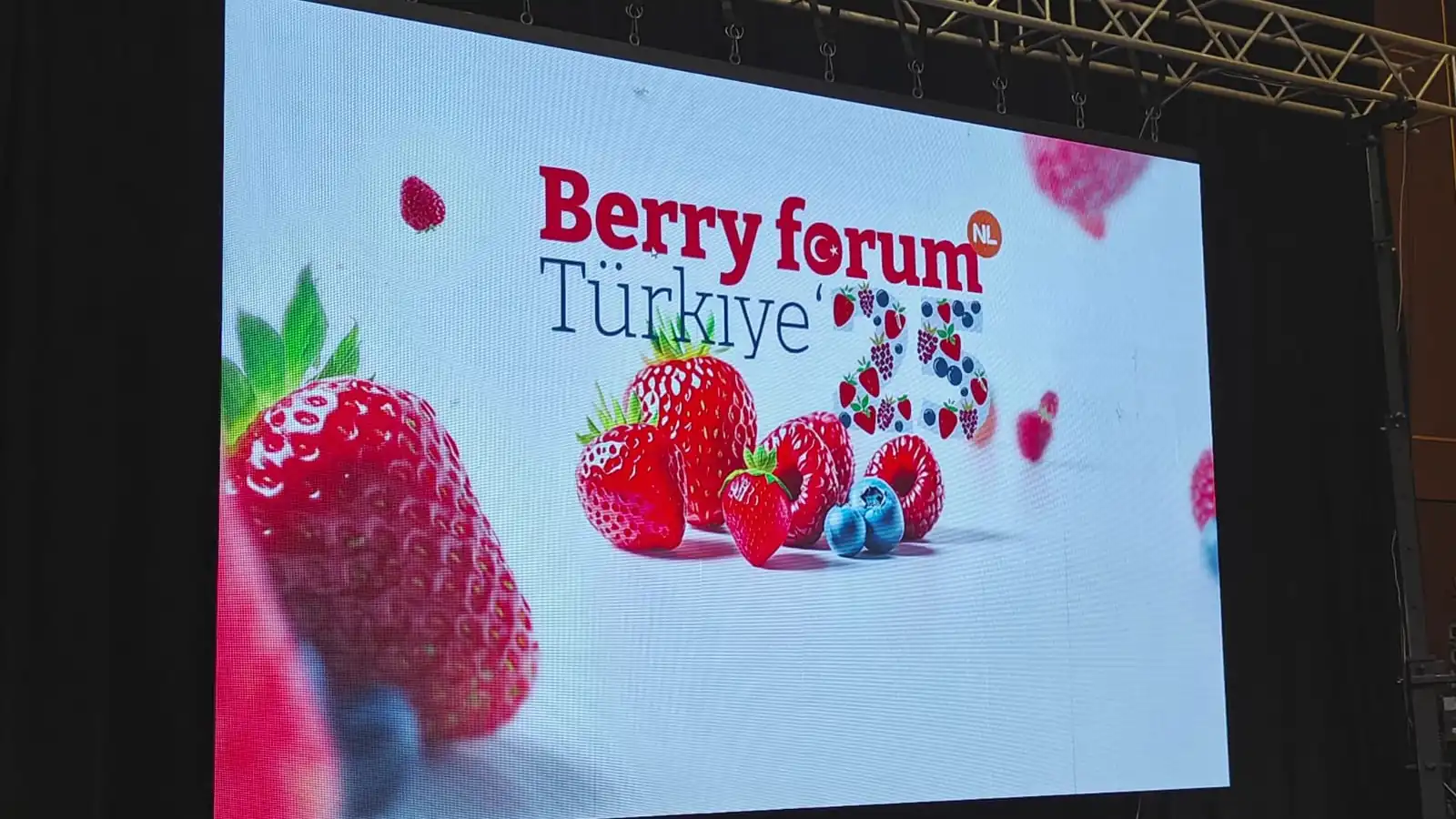
Strategies and geopolitics
On the geopolitical front, Kuzin pointed out regional instability (Gaza, Iran-Israel), water scarcity, and possible logistical changes in the Syrian region.
Domestically, Turkey shows positive economic prospects (+4.1% growth in 2026), with expected increases in blueberry consumption and the development of the raspberry and blackberry sector. However, to remain competitive in strawberries, the country will need to diversify windows and varieties and strengthen its export capacity towards high value-added markets.
Genetics and quality
Fall Creek (Andrea Pergher): “The perfect fruit is born from balance”
The presentation by Andrea Pergher, for Fall Creek Farm & Nursery, had a highly technical tone but carried a very strong and clear message:
“The perfect fruit is born from a balance between the needs of the consumer and those of the producer.”
Pergher described in detail the drivers guiding Fall Creek’s breeding choices:
• on the one hand, consumers, who demand crunchiness, uniform size, balanced flavors, shelf life, and attractive appearance;
• on the other hand, producers, who need agronomic efficiency, ease of harvest, production regularity, and varietal stability.
Breeding — he emphasized — is not a neutral process, but profoundly shapes the entire chain: from orchard design, to post-harvest logistics, to commercial positioning.
This strategic vision fits perfectly into the Turkish context, where today’s varietal choices will determine the sector’s competitiveness over the next 10 years.
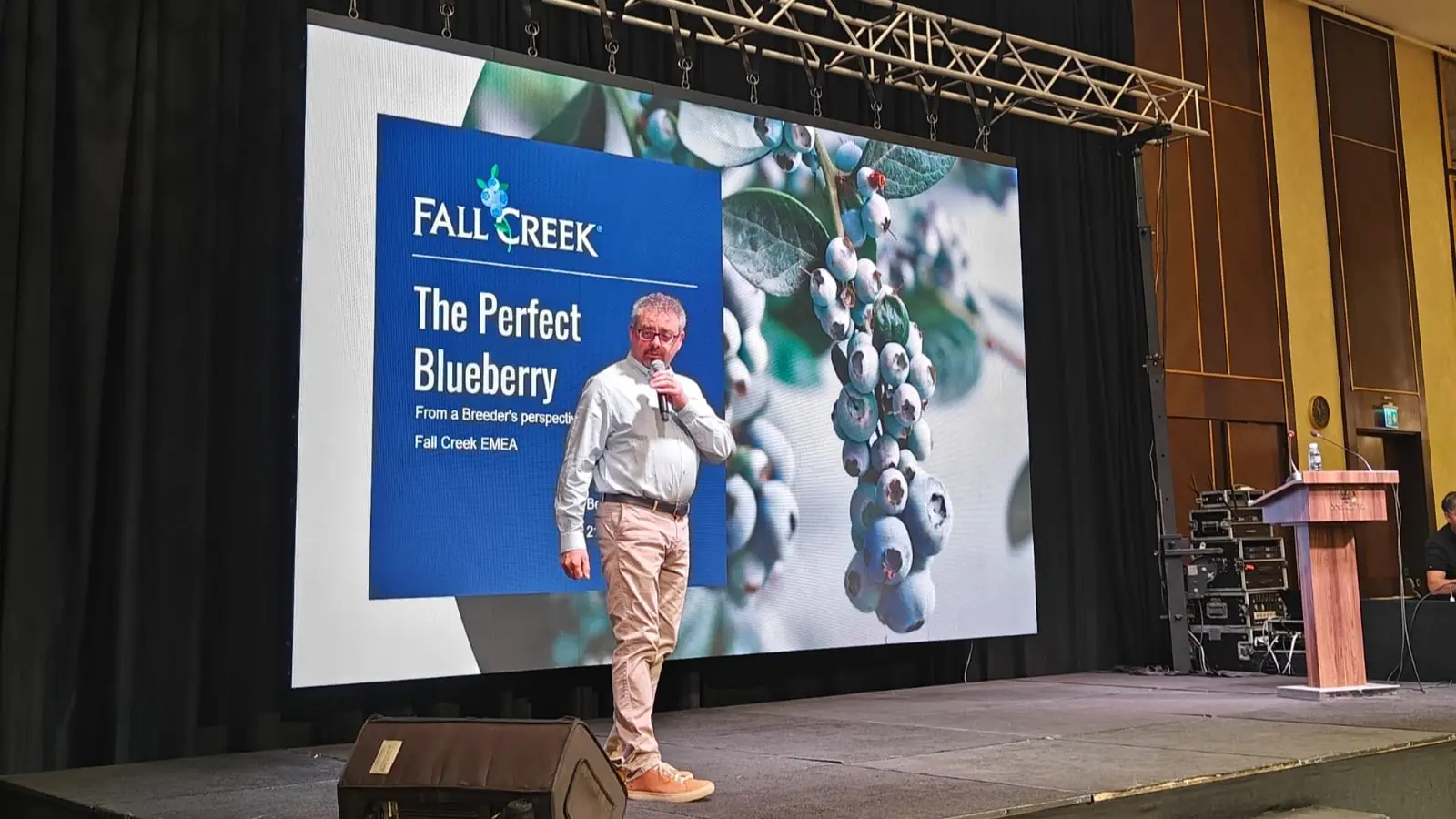
Innovation and climate adaptation
Fresh Forward (Teunis Sikma): climate-oriented breeding and strawberry strategy
The presentation by Teunis Sikma, director of Fresh Forward, highlighted a breeding and market positioning strategy strongly oriented towards climate and production windows.
The company has three main breeding hubs:
• The Netherlands (high chill),
• Spain/Huelva (low chill),
• Turkey, where it will open a new breeding site because “breeding must be done where the plants will grow.”
A concrete example of this approach is the Fandango variety, capable of maintaining high quality along very long trade routes (from Morocco to Finland).
Since climate change evolves faster than breeding, Fresh Forward is investing in genomic pre-breeding to identify traits of phytopathological resistance, accelerating varietal improvement timelines.
In Turkey, the company collaborates with the Yaltir family, producing strawberries and other berries, and alongside the production of frigo plants also develops plug plants. Sikma emphasized how Turkey presents both critical issues and opportunities: a production season that is too short, concentrated supply, still low strawberry exports (20,000 t), and the need to shift from the local bazaar to structured retail channels, enhancing the December–February window.
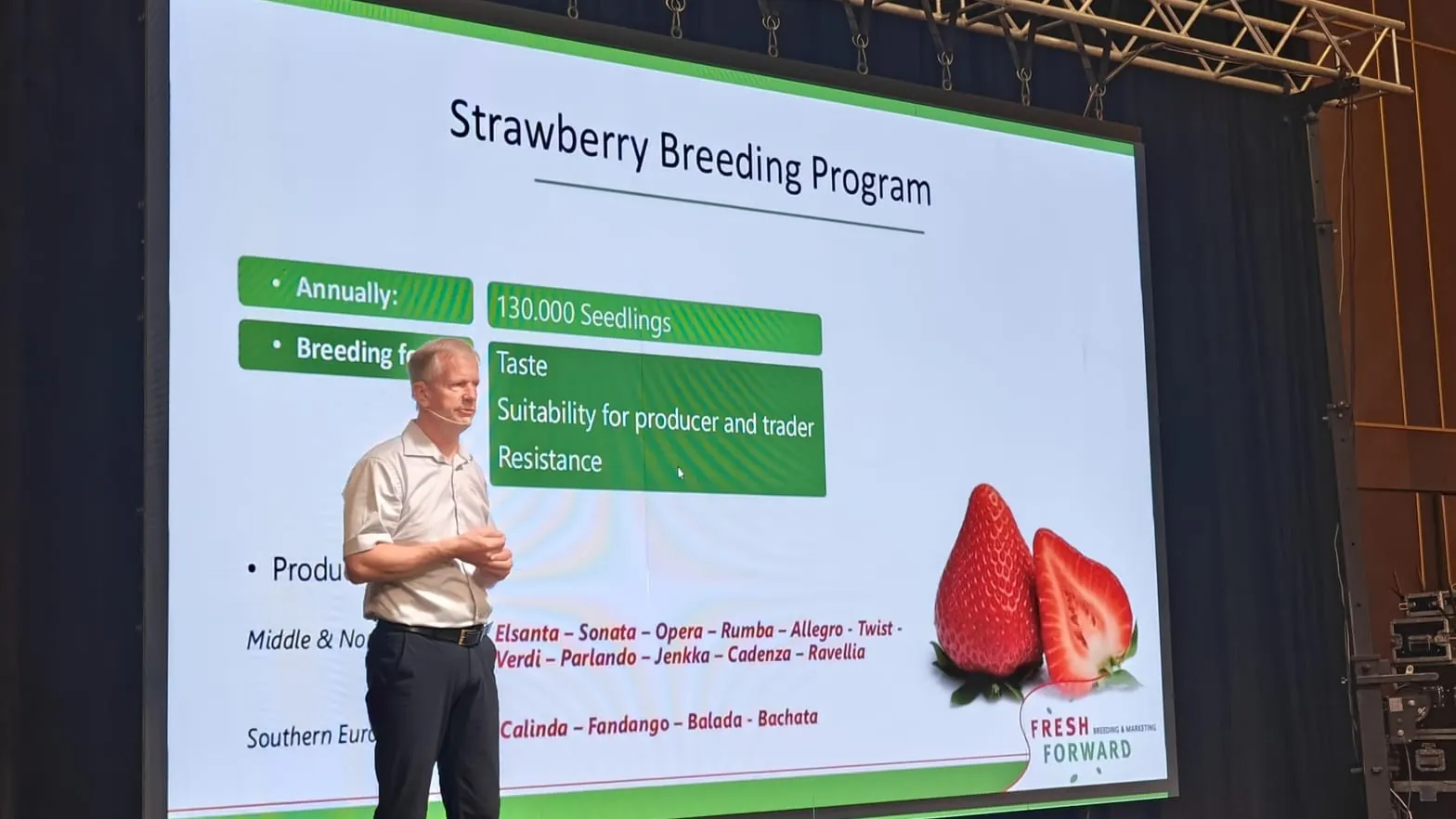
[...]
Marco R. Butera
Global Berry Specialist





